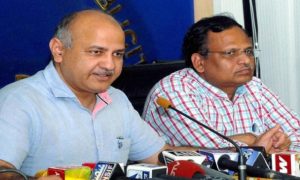The soon to be set up Sixteenth Finance Commission is likely to be tasked with reviewing the revenue collections of states under the Goods and Services Tax (GST) and the need for a review of the GST compensation cess.
Read More: What Is Advance Tax And Do You Need To Pay It?
The Finance Commission, a Constitutionally mandated body under Article 280 of the Constitution that decides on the devolution of taxes between the Centre and the states for a five-year period, is likely to be set up by the month end or early December. It will recommend the formula for sharing revenues between the Centre and the states for the five-year period from fiscal year 2026-27.
According to sources, the panel is likely to be given the mandate to review the revenue collection under GST and whether there is any shortfall for states with the compensation cess coming to an end.
The cess, which is levied on luxury, sin and demerit goods, was initially introduced for a period of five years along with GST from July 1, 2017, to help states meet any shortfall from the new indirect tax regime. While it technically came to an end in June 2022, the amount collected through the cess is being used to repay the interest and principal of the Rs 2.69 lakh crore that the Centre had borrowed during the Covid-19 pandemic for states.
In its last meeting in October, the GST Council headed by Union Finance Minister Nirmala Sitharaman discussed how to appropriate the revenue from the cess after March 2026. The Council is now expected to decide on the ‘GST compensation cess’ with regard to its name, and the modalities for its distribution among the states after some states raised the issue.
Read More: What is more tax-efficient for shareholders – Buyback or Dividends?
Sources said the finance panel will be able to have a much more comprehensive view on the issue and would be able to provide recommendations on it as well after getting a full picture on projected revenue from GST over the next few years.
A rate rationalisation of the GST is also pending but indications are that this may only be taken up post the General Elections next year.
However, various reports have highlighted the need to review the tax structure and review revenue collections by states.
A recent report by PRS Legislative Research on State of State Finance 2023 that GST slabs may need to be rationalised for post compensation period.
“The compensation needs of most states were higher in 2021-22 than in 2018-19. However, post June 2022, states that were more reliant on GST compensation such as Puducherry, Punjab, Delhi, Himachal Pradesh, Goa and Uttarakhand are likely to be the most adversely affected,” it noted.
Read More: Net direct tax mop-up grows 22% to Rs 10.60 lakh crore so far in FY’24, crosses 58% of budget target
The government has already initiated the process of setting up the Sixteenth Finance Commission. Earlier this month, Ritwik Pandey, a 1998-batch IAS officer of the Karnataka cadre who was Joint Secretary, Department of Revenue, Ministry of Finance, as Officer on Special Duty for Advance Cell of the finance panel. The terms of reference of the panel as well as the members are likely to be announced soon.





































